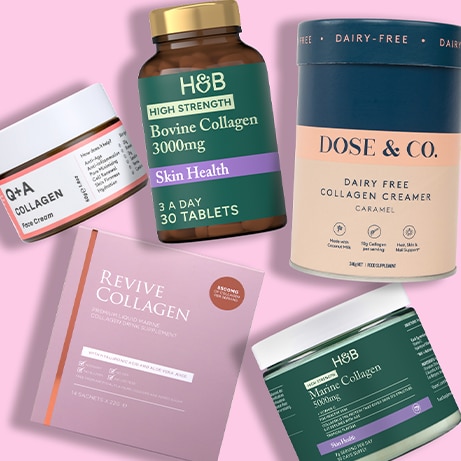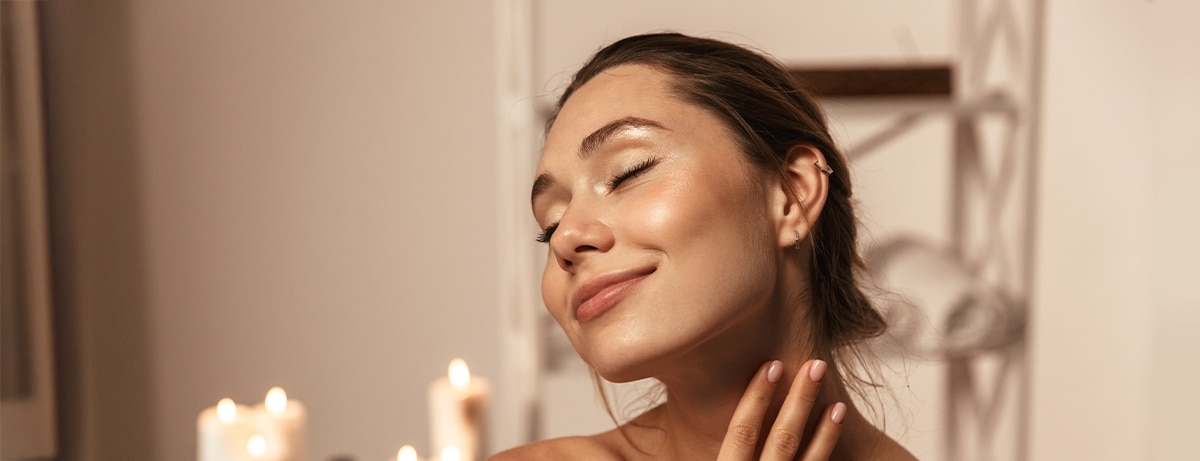15% off £25 or 20% off £35
Code:BASKET
Ask an expert: how can I repair my skin after a late night?

Survive the party season and keep glowing with expert tips and advice from a dermatologist
Summary
1How does drinking affect my skin?
“When the body's parched from alcohol-related dehydration, it tends to pull moisture from the skin, causing it to become dry…”
2How can we remedy our skin after a night out?
“If you wake up feeling rough, the most important thing to do is to rehydrate,” stresses Dr Ejikeme. “The recommended…”
3Will my skin recover after a late night?
“One late night shouldn’t have major effects on the skin, and after a good night’s kip, you should be back to your best..."
Puffy eyes, paleness, flaky patches. Late nights can really take a toll on your skin, especially in the winter months...
But you don’t need to call in sick or go off-camera on Zoom if you’ve woken up looking less than your best. To the rescue: dermatologist Dr Ifeoma Ejikeme, who explains the foolproof skin tricks that will undo (or at least disguise) a big night out.
What happens to our skin after a late night?
Without putting a major downer on your upcoming social plans, poor sleep can affect our skin in lots of different ways, and few of them are positive.
“Increased fine lines, under eye circles, a depleted skin barrier, poor elasticity… there are lots of changes that happen when we miss out on sleep,” says Dr Ejikeme. “Depending on how many late nights you’ve had back-to-back, new breakouts and pimples can pop up too, as the stress of being sleep-deprived can trigger extra oil production and inflammation.”1
Other impacts of missing out on those all-important Zs include changes to your skin tone, with skin taking on a dull, greyish colour that no amount of emergency bronzer can fix.
“When you’re low on sleep, there’s less blood circulation to the skin and it tends to rob you of that natural, healthy glow,” says Dr Ejikeme.
So, beauty sleep? It’s actually a thing...
How does drinking affect my skin?
Your hangover doesn’t just extend to feelings of nausea, anxiety and all-day brain fog. Experts generally agree that alcohol is one of the worst things for our skin health.
Even though it technically feels like you’re drinking lots of liquids, drinking multiple glasses of beer or wine can have a diuretic effect,2 which causes you to need the toilet more. “When the body's parched from alcohol-related dehydration, it tends to pull moisture from the skin, causing it to become dry and flaky,” she says.

Needless to say, a boozy night out can also have a big impact on sleep. “Studies3 show it reduces the amount of deep, restorative sleep we get, which can slow the skin’s overnight healing process,” says Dr Ejikeme. “Depending on the amount you drink, it can also affect your body’s nutrient absorption. So, over party-heavy periods, it can have a cumulative effect, causing nutrient depletion and tiredness.”
What can we do to remedy the effects on your skin, after a big night out?
Glug a glass of H2O
“If you wake up feeling rough, the most important thing to do is to rehydrate,” stresses Dr Ejikeme. “The recommended water intake over the course of a day is 1.5 litres for a woman or 2 litres for a man, but you may want to slightly overshoot this by a glass or two to replenish what’s lost.”
Top up your electrolytes
“Adding electrolytes (essential minerals, like sodium, calcium, magnesium and potassium) to your water via powders or tablets that dissolve in drinks can improve the amount of water your body is able to retain,” says Dr Ejikeme.
“I’d avoid the popular TikTok trend of making your own homemade electrolyte drinks with sea salt, citrus and coconut water though,” she warns, “because it’s difficult to measure the exact amounts you need. Getting the balance wrong can be extremely harmful to health.”
Slather on a humectant
“The right skincare can help to pull moisture into the skin after a late night,” Dr Ejikeme explains. “After washing your face, use a humectant product containing glycerine or hyaluronic acid – this can attract moisture from both the environment and the deeper layers of the skin to the epidermis (outer layer).”
Pop on a vitamin C serum
“Nights out can expose us to free radical damage from things like pollution, cigarette smoke, wind exposure and alcohol,” Dr Ejikeme adds. “Left unchecked, free radicals (unstable atoms in your body) can contribute to skin issues like fine lines, dark spots and dullness. Antioxidants are your go-to for supporting this, which you can find in products that contain vitamin C and coenzyme Q10.”
Seal in the hydration with an emollient
“After applying a humectant, follow it up with an emollient-rich moisturiser that can lock in that all-important hydration,” advises Dr Ejikeme. “Look for soothing ingredients like squalane, ceramides and panthenol that can help to protect the skin’s delicate barrier and seal in the good stuff.”
What role does collagen play in our skin?
Think of collagen as the building blocks of skin. “Our epidermis contains specialised cells known as fibroblasts, which produce various proteins, one of which is collagen, whose job is to provide the skin with its firmness, plumpness and elasticity,” explains Ejikeme.
“We typically lose about 1% of collagen each year from our mid-to-late twenties. In men, this loss happens at a consistent rate, whereas collagen levels remain relatively stable in women until they hit menopause, after which the degradation accelerates.”

So, should you be investing your hard-earned cash on collagen supplements?
“While it’s limited, emerging research has linked ingesting marine collagen with a reduction in transepidermal water loss, meaning less moisture escapes from the skin, leading to a more hydrated and moisturised appearance,” Dr Ejikeme states.
How long does it take for skin to recover after a late night?
That all depends on how hard you’ve been burning the midnight oil. “One late night shouldn’t have major effects on the skin, and after a good night’s kip, you should be back to your best,” says Dr Ejikeme. “But if there’s been prolonged lack of sleep, stress, tiredness or just going out a lot, then it’s likely going to take longer to bounce back from blemishes and dryness.”
In order to try and avoid these seasonal skin lows, Dr Ejikeme’s biggest tip is to maintain consistency with your skincare. “You want to improve the baseline of your skin so that when your sleep takes a knock, you’ve got a bit of a buffer.”
This includes having a failsafe cleansing and moisturising routine, as well as applying a daily full-spectrum SPF to protect your skin from the sun, which will naturally reduce your baseline dryness, fine lines and pigmentation.
The final say
Nailing party season skin is less about whacking on the emergency face masks and under eye gel patches the morning after and more about building good beauty habits that can see you through all the late nights to come.
With a bit of time and patience, glowing skin can be a year-round thing, and not just a fleeting summer fling. Repeat after us: consistency is everything.
The advice in this article is for information only and some of the information reflects the opinion of a dematologist and should not replace medical care. Please check with your GP or healthcare professional before trying any supplements, treatments or remedies. Food supplements must not be used as a substitute for a varied and balanced diet and a healthy lifestyle.
- Sleep deprivation and the skin. Oup.com. 2024. Available from: https://academic.oup.com/ced/article/48/10/1113/7191992
- Polhuis K, Wijnen A, Sierksma A, Calame W, Tieland M. The Diuretic Action of Weak and Strong Alcoholic Beverages in Elderly Men: A Randomized Diet-Controlled Crossover Trial. Nutrients [Internet]. 2017 Jun 28;9(7):660. Available from: https://www.ncbi.nlm.nih.gov/pmc/articles/PMC5537780/
- Lu S, Zhang S, Wang Y, Ni J, Zhao T, Xiao G. Anti-Skin Aging Effects and Bioavailability of Collagen Tripeptide and Elastin Peptide Formulations in Young and Middle-Aged Women. Deleted Journal. 2024 Mar 1;100019–9. Available from: https://www.sciencedirect.com/science/article/pii/S2950306X24000177












